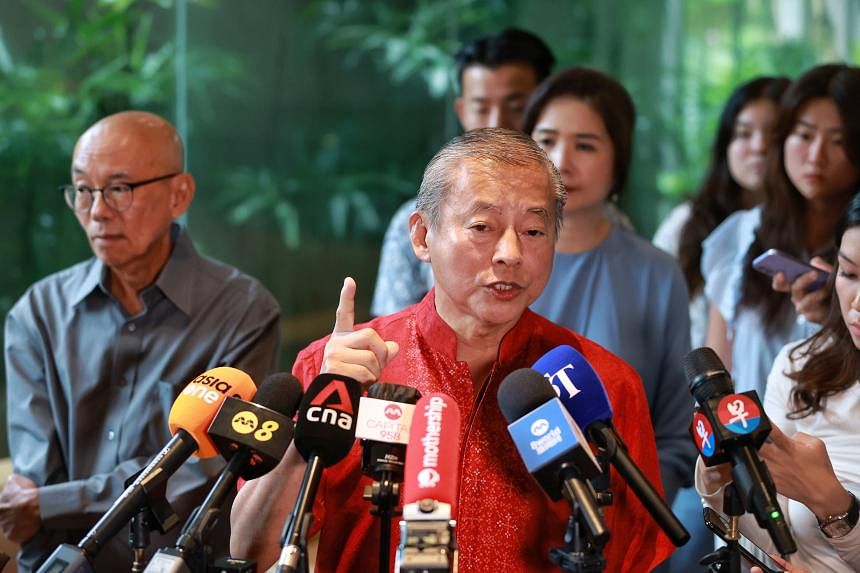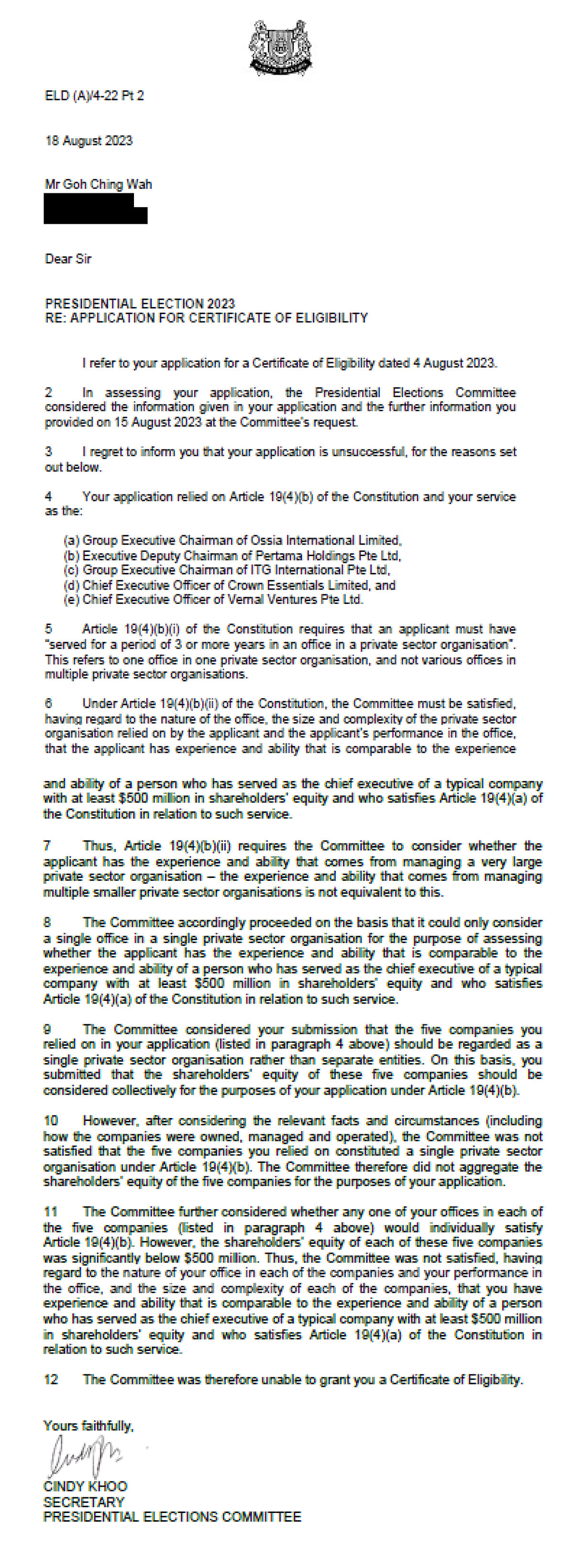SINGAPORE – The Presidential Elections Committee (PEC) was not satisfied that the five companies put forth by businessman George Goh in his application for presidency constituted a single private sector organisation.
In a statement released on Friday night, the PEC said that it had “carefully considered” Mr Goh’s application for a certificate of eligibility under Article 19(4)(b), the private-sector deliberative track.
“However, after taking into account the relevant facts and circumstances, including how the companies were owned, managed and operated, the committee was not satisfied that the five companies constituted a single private sector organisation,” it added.
“Consequently, for the reasons explained in the committee’s letter to Mr Goh, the committee was unable to grant Mr Goh a Certificate of Eligibility under Article 19(4)(b) of the Constitution.”
At a press conference held at his house earlier, Mr Goh said he cannot accept the PEC’s decision, which he felt was unfair.
He later added in a media statement that the PEC “took a very narrow interpretation of the requirements without explaining the rationale behind its decision”.
The PEC said that it decided to release its letter to Mr Goh in response to public allegations made against it.
In its letter of rejection to Mr Goh, the PEC named the five companies that he had used for his application.
He said in his application that he is group executive chairman of Ossia International, executive deputy chairman of Pertama Holdings, group executive chairman of ITG International, chief executive officer of Crown Essentials and chief executive officer of Vernal Ventures.
Crown Essentials is registered in the British Virgin Islands.
The PEC also noted in its letter to Mr Goh that Article 19(4)(b)(ii) of the Constitution requires the committee to consider whether the applicant has the experience and the ability that comes from managing a very large private sector organisation.
It said that “the experience and ability that comes from managing multiple smaller private sector organisations is not equivalent to this”.
The committee said it proceeded accordingly on the basis that it could only consider a single office in a single private sector organisation.
This was for the purpose of assessing whether the applicant has the experience and ability comparable to those of a person who has served as the chief executive of a typical company with at least $500 million in shareholders’ equity and who satisfies Article 19(4)(a) of the Constitution, in relation to such service.
The PEC said that it considered Mr Goh’s submission that the five companies he relied on in his application should be regarded as a single private sector organisation, rather than separate entities.
Mr Goh submitted that the shareholders’ equity of these five companies should be considered collectively for the purpose of his application under Article 19(4)(b).
However, the PEC said that after considering the relevant facts and circumstances, including how the companies were owned, managed and operated, it was “not satisfied” that the five companies constituted a single private sector organisation.
The committee, therefore, did not aggregate the shareholders’ equity of the five companies for Mr Goh’s application.
The Committee further considered whether any one of the five companies would individually satisfy Article 19(4)(b), said the letter.
However, the shareholders’ equity of each of these five companies was significantly below $500 million.
It said in its letter to Mr Goh: “Thus, the committee was not satisfied, having regard to the nature of your office in each of the companies and your performance in the office, and the size and complexity of each of the companies, that you have experience and ability that is comparable to the experience and ability of a person who has served as the chief executive of a typical company with at least $500 million in shareholders’ equity and who satisfies Article 19(4)(a) of the Constitution in relation to such service.”
The PEC said: “The committee was therefore unable to grant you a certificate of eligibility.”
Under the Constitution, the decision of the PEC on whether someone is eligible to be a candidate is final and not subject to appeal or review in any court.
The Presidential Elections Committee’s letter to Mr George Goh:



